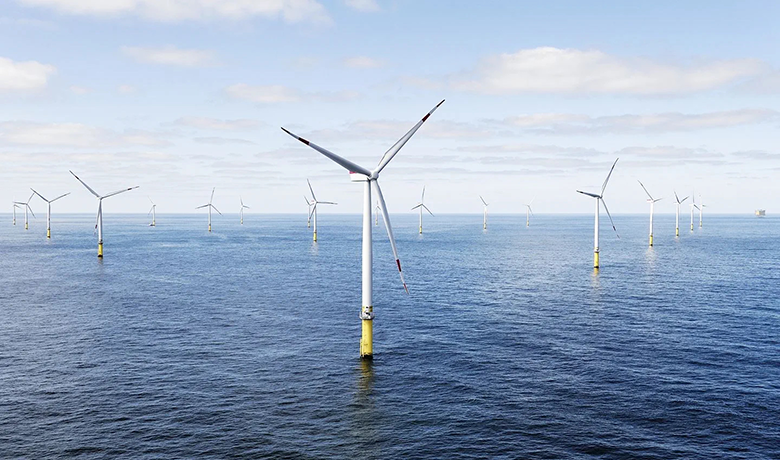(BOSTON) — Renewable energy firm Orsted on Wednesday halted the development of two U.S. offshore wind projects and said related impairments had surged above $5 billion, Reuters reported, as the industry grapples with supply chain delays and higher costs.
Orsted, the world’s largest offshore wind developer, said it would stop developing its 2,248-megawatt (MW) Ocean Wind 1 and 2 projects in New Jersey. Related impairments could amount to as much as $5.58 billion.
The offshore wind industry has found itself in a perfect storm of rising inflation, interest rate hikes and supply chain delays, casting doubt on plans by President Joe Biden and several states to use offshore wind to replace fossil fuels in energy production to fight climate change.
On Tuesday, energy major BP booked a third-quarter writedown of $540 million on wind projects after officials in New York state rejected a request for better terms to reflect what BP called “inflationary pressures and permitting delays.”
Norway’s Equinor, BP’s partner on those New York offshore wind developments, booked a $300 million impairment on the projects on Friday.
The White House on Wednesday said it is committed to supporting the nascent U.S. offshore wind industry despite the recent challenges, and cited billions of dollars worth of incentives included in the administration’s signature climate law, the Inflation Reduction Act, last year.
“Macroeconomic factors have changed dramatically over a short period of time, with high inflation, rising interest rates, and supply chain bottlenecks impacting our long-term capital investments,” David Hardy, group executive vice president and CEO for the Americas at Orsted, said in a company news release. “As a result, we have no choice but to cease development of Ocean Wind 1 and Ocean Wind 2. We are extremely disappointed to have to take this decision, particularly because New Jersey is poised to be a U.S. and global hub for offshore wind energy. I want to thank Gov. Murphy and N.J. state and local leaders who helped support these projects and continue to lead the region in developing American renewable energy and jobs.”
Orsted said the decision to cease development of Ocean Wind 1 and Ocean Wind 2 is part of an “ongoing review” of the company’s U.S. offshore wind portfolio, with an update planned for its fourth quarter results announcement. The company said it remains committed to the U.S. renewable energy industry, including offshore wind and land-based technologies.
Orsted’s board of directors decided Tuesday to take a final investment decision (FID) on the Revolution Wind wind project off Connecticut and Rhode Island, a 50/50 joint venture with Eversource.
“With our final investment decision, we’re solidifying our commitment to building our second commercial-scale offshore wind farm in the United States, helping to deliver more American energy and American jobs,” Hardy said. “I want to thank our Orsted employees who helped achieve FID for Revolution, as well as our team at South Fork Wind building New York’s first offshore wind farm, our New Jersey team that worked tirelessly to advance these projects, and our land-based team delivering across our portfolio. As we manage and deliver in a challenging market, our team of experts sets itself apart.”

